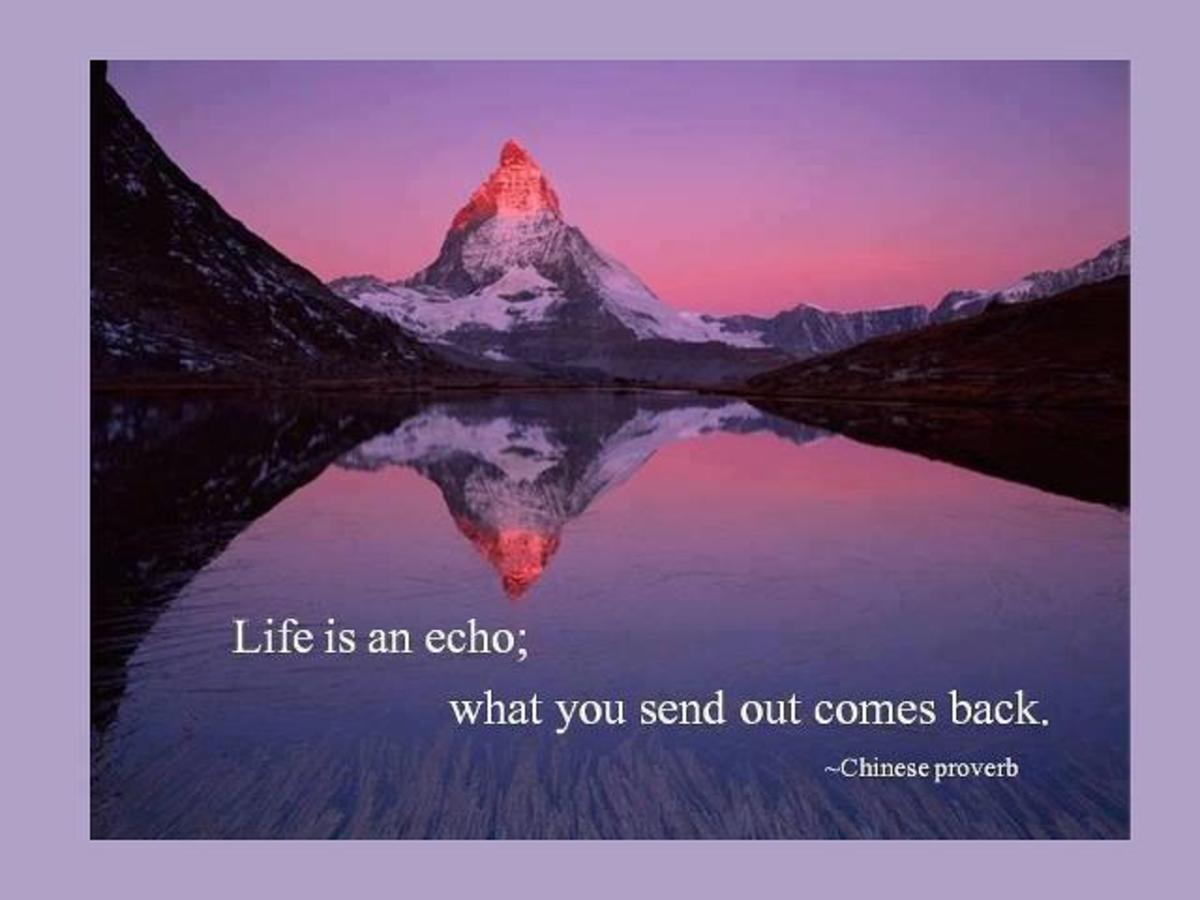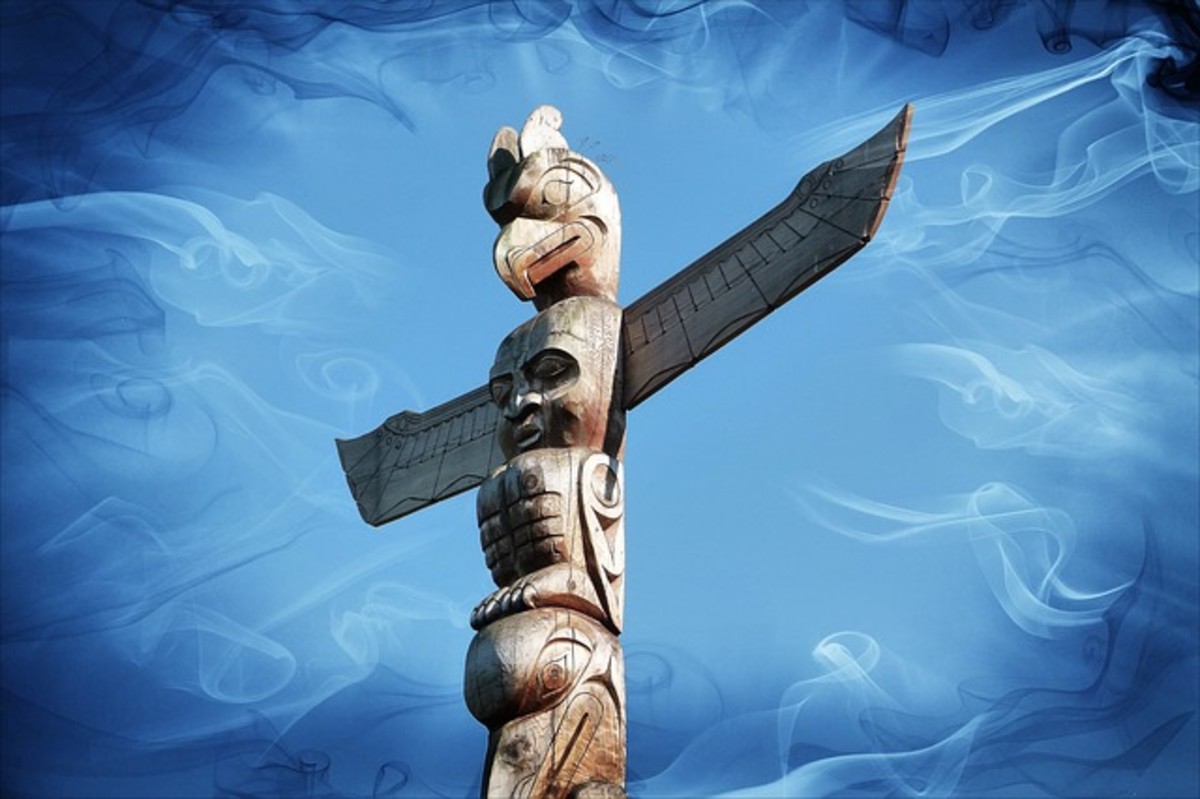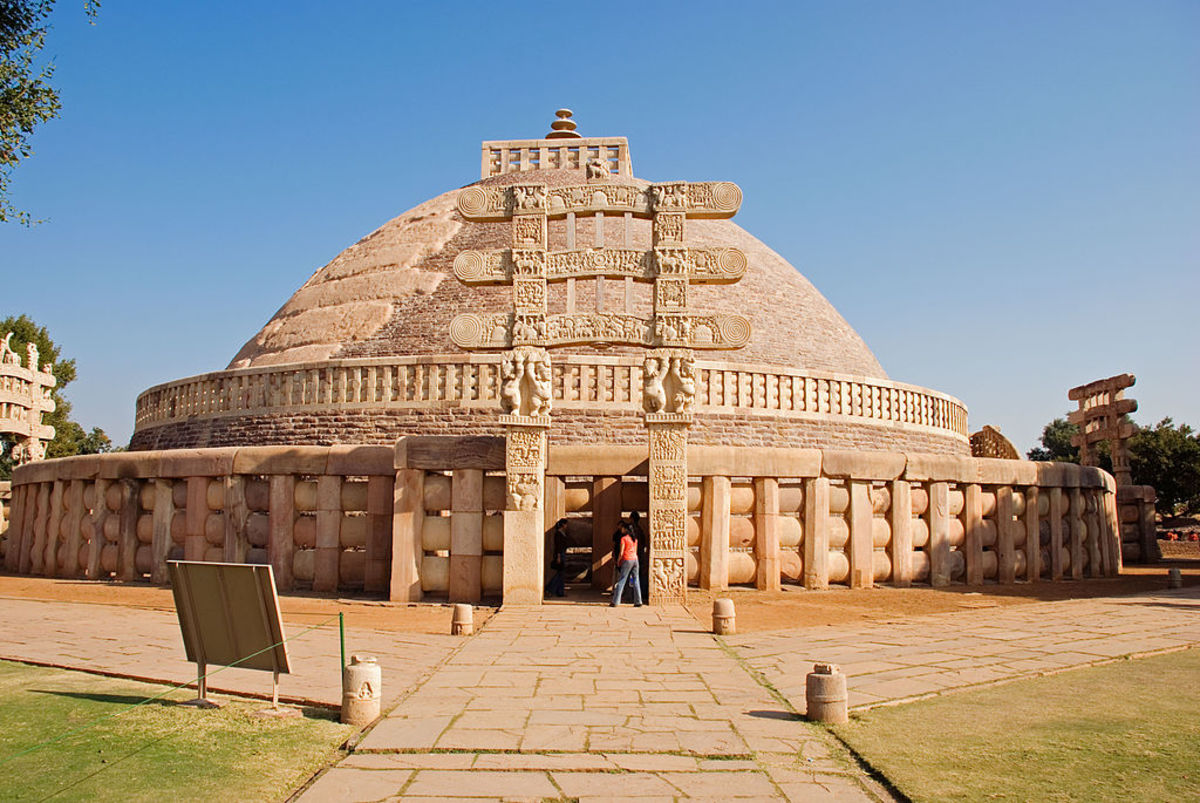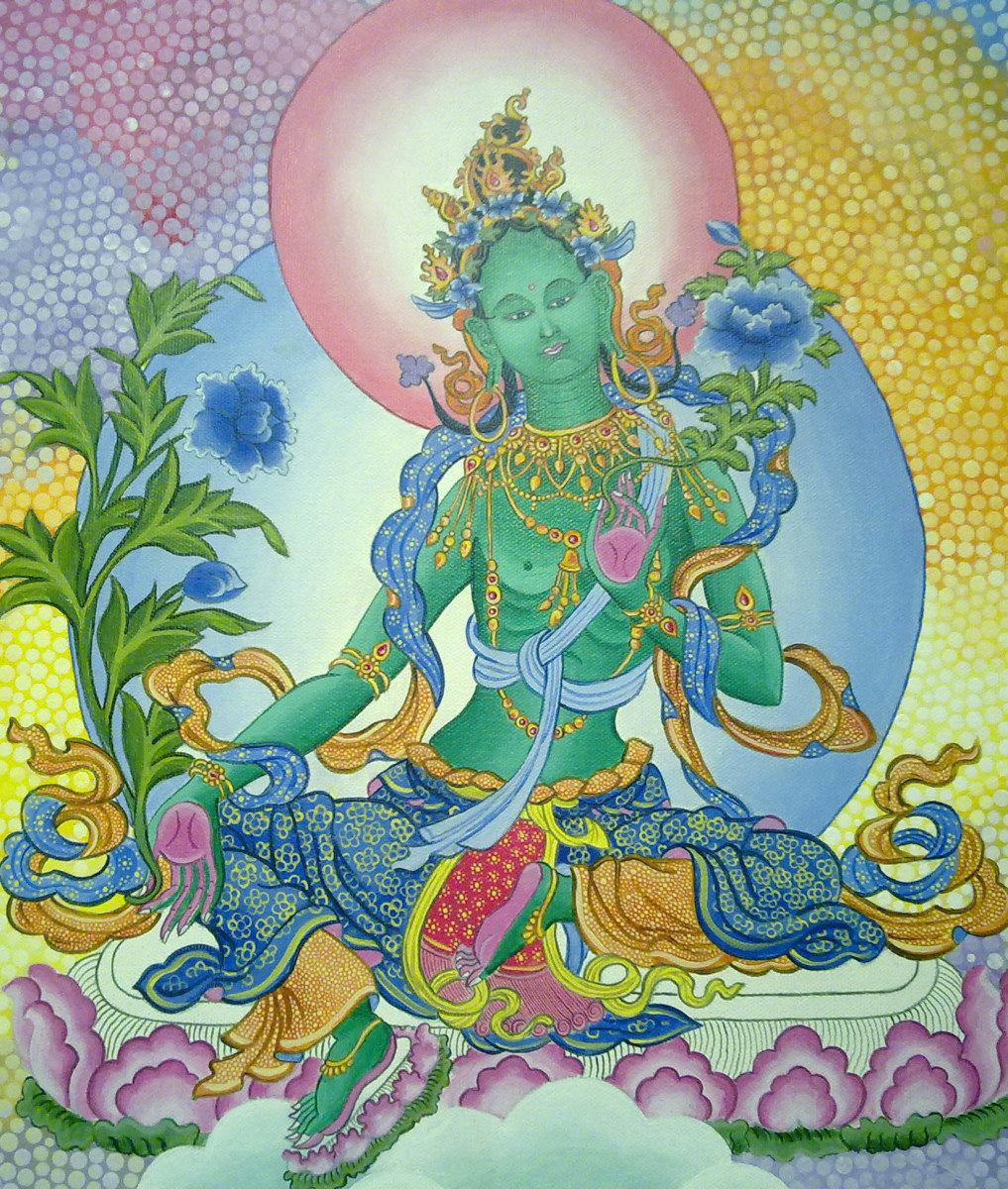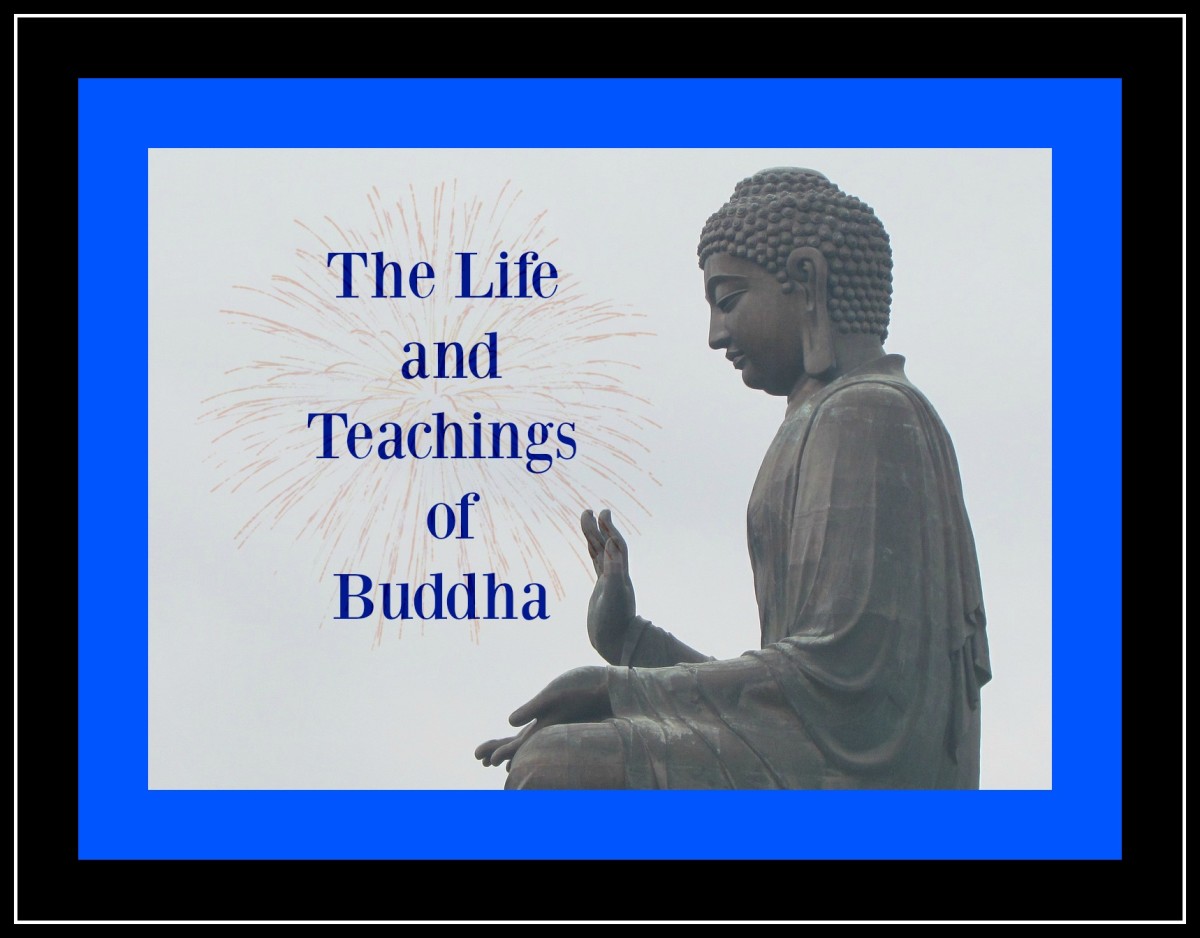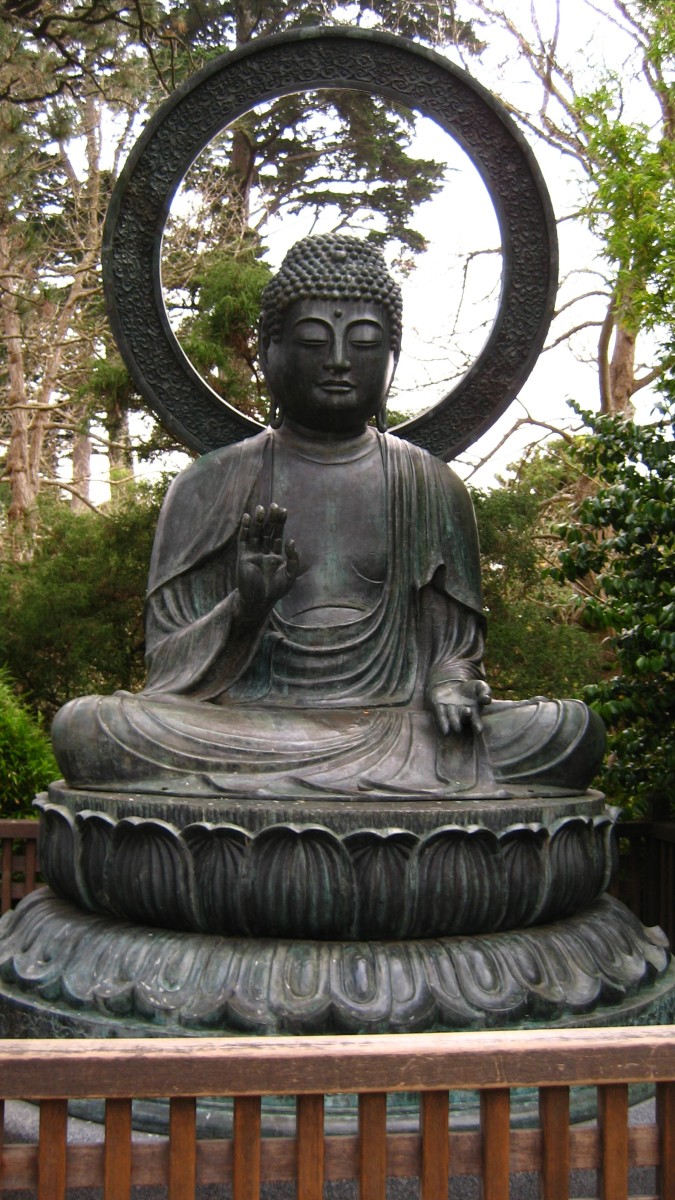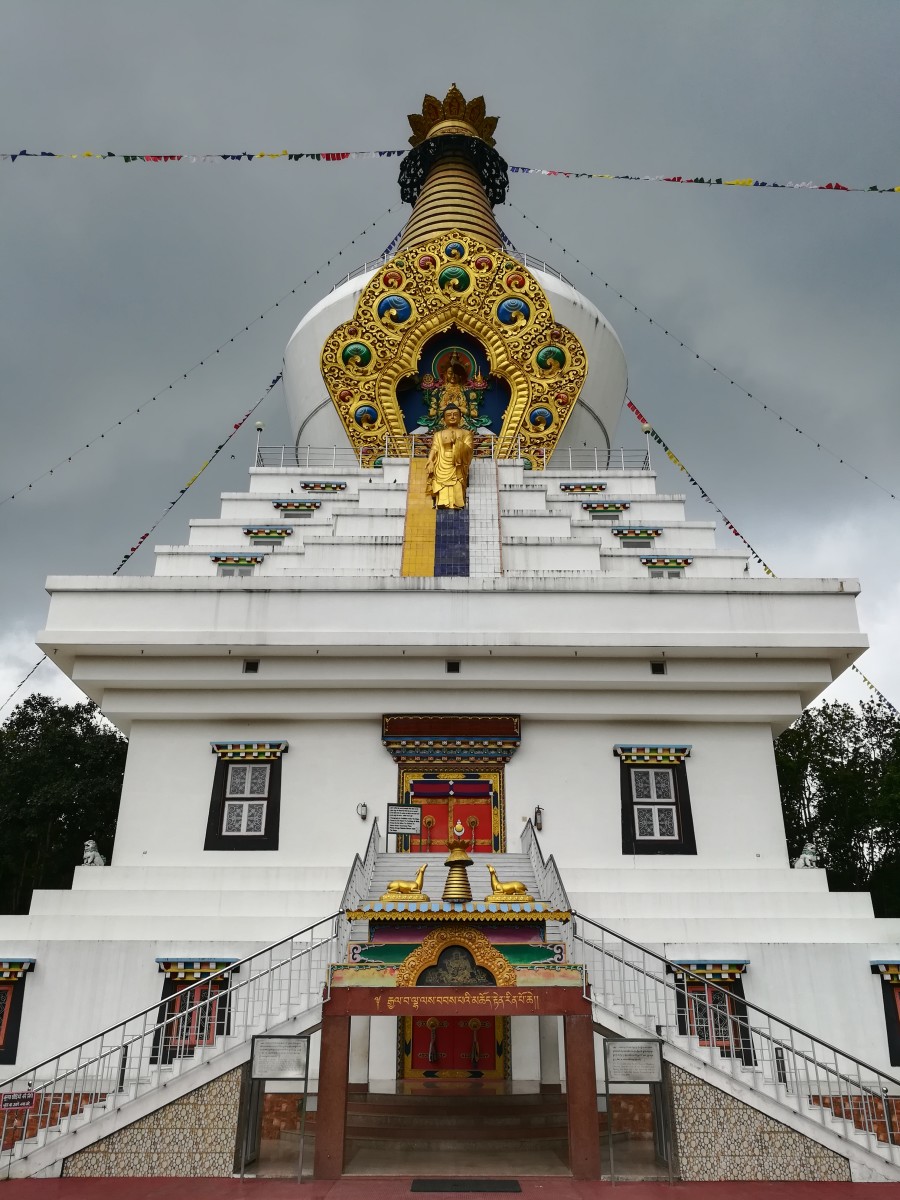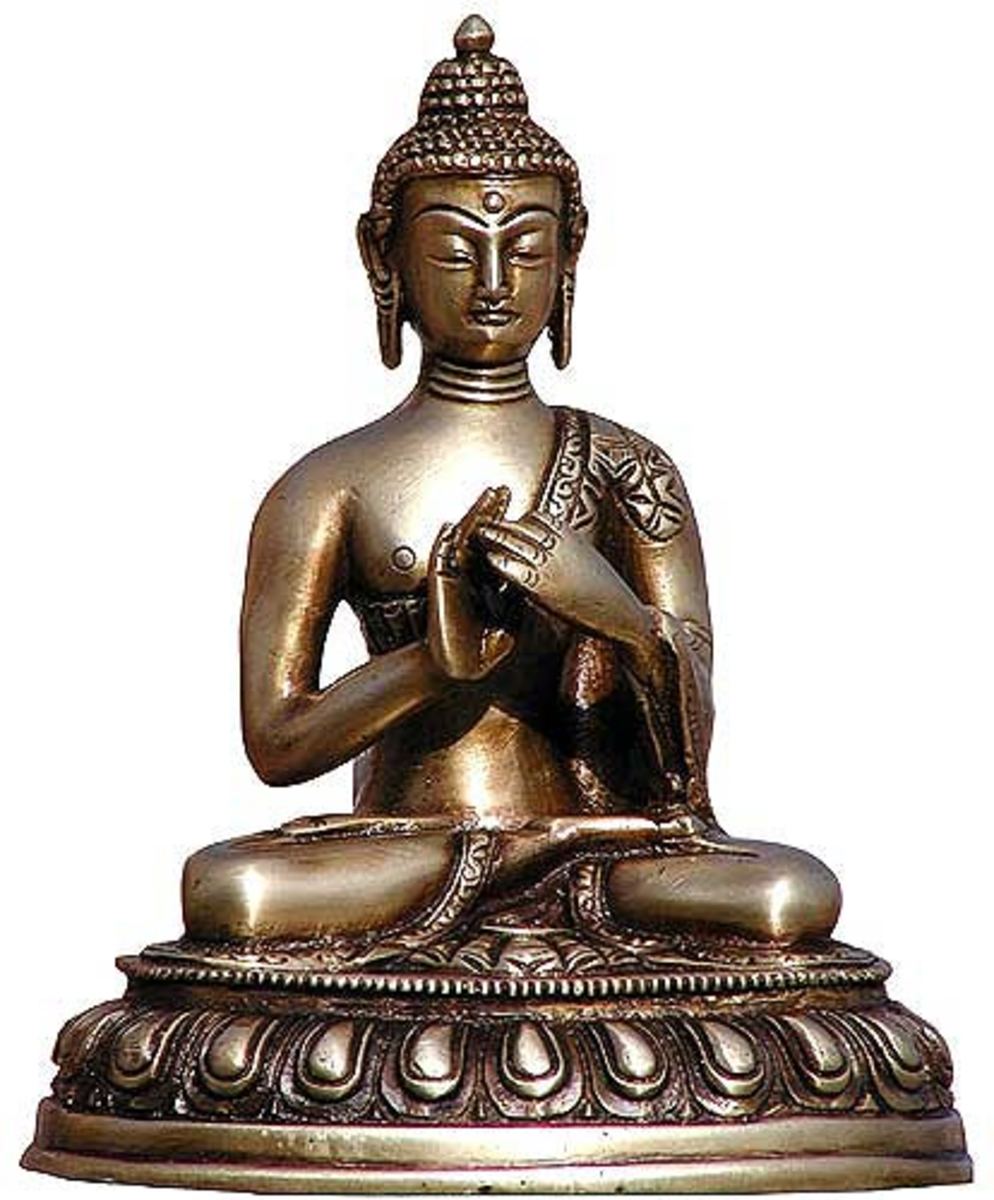The three refuges of the Buddhist Faith
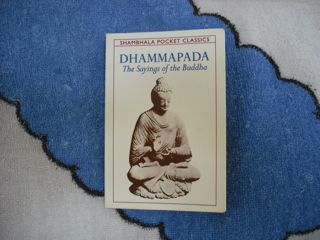
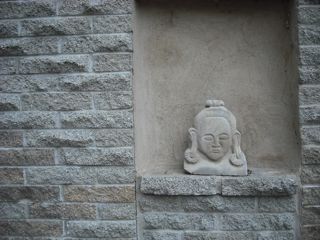
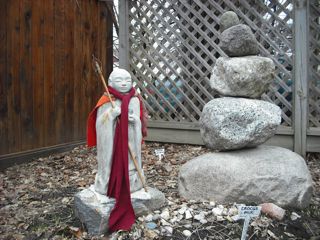
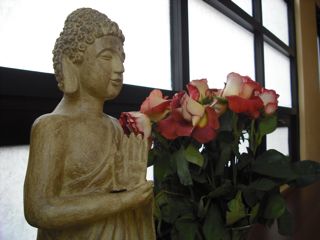
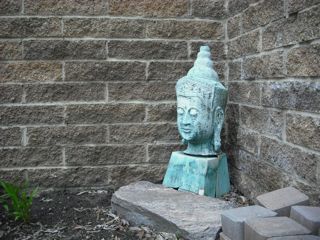
What are the three refuges?
The Three Refuges
I go to Buddha as my refuge.
I go to Dharma as my refuge.
I go to Sangha as my refuge.
What the three refuges mean.
By reciting the three refuges, many Buddhists express there devotion to the Buddhist faith; and three of its cornerstones, Buddha, Dharma and Sangha. So to understand what it means to take the three refuges, we need to understand what these terms mean.
Who or what is The Buddha.
The Buddha was a man that lived about 2550 years ago. Born to a noble family in the foothills of the Himalayas, in what is now called Nepal, it is said he was destined from birth to become a great spiritual teacher. He became a homeless seeker for the truths that would liberate himself and all people from suffering. After many years of searching he eventually reached a permanent state of enlightenment while sitting under a sacred fig tree: he completely understood what the causes of human suffering are, and what can be done to remove them.
To me, and many other Buddhists, what the Buddha in the refuges represents includes, and is more than, just the historical person. It also represents the possibility of uncovering that consciousness within my self. As a Buddhist I believe that what was possible for the Buddha is possible for myself, and for anyone who earnestly desires and strives for the end of suffering (whether they are Buddhist or not!).
Another way that I've heard the refuges stated illuminates the expansive nature of the terms involved:
The Three Refuges
I go to Buddha, my deeply awakened mind, which must be cultivated to be known fully.
I go to Dharma, teachings manifesting everywhere, which must be cultivated to be known fully.
I go to Sangha, deep friendship and interconnection of all beings, which must be cultivated to be known fully.
So, what is the Dharma?
A literal translation of the word means: the teachings of the Buddha. The actual talks that he gave were preserved by the oral tradition for hundreds of years before they were written down. After they were preserved in writing, new people have added new insights to the body of work which may be loosely referred to as the Dharma. In the Zen Buddhist tradition, for instance, there is a great writer by the name of Dogen. Many Zen Buddhist would include his teachings in this literal sense of the word Dharma, while others might say only the words of the Buddha can be literally classified this way.
The Buddha himself speaks eloquently to what constitutes valid and invalid doctrines of faith to live by in his discourse to the inhabitants of Kalama. The Kalama were a people who lived by a forest that brought all kinds of spiritual seekers and teachers their way. They would hear one teacher say one thing, and then another teacher would negate what had been said, and say something else entirely. So when the Buddha came by the Kalamas they asked him about their dilemma.
The Buddha said to them:
"It is fitting for you to be perplexed, O Kalamas, it is fitting for you to be in doubt. Doubt has arisen in you about a perplexing matter. Come, Kalamas. Do not go by oral tradition, by lineage of teaching, by hearsay, by a collection of texts, by logic, by inferential reasoning, by reasoned cogitation, by the acceptance of a view after pondering it, by the seeming competence of a speaker, or because you think, 'The ascetic is our teacher.' But when you know for yourselves, 'These things are unwholesome; these things are blamable; these things are censured by the wise; these things, if undertaken and practiced, lead to harm and suffering,' then you should abandon them."
From this passage, part of the preserved oral tradition of the Buddha, it is clear that he meant for each person to fully explore, with their own being, any doctrine or article of faith to see if it is viable. He goes on to say that the three poisons (greed, anger and delusion) will lead to unwholesome states of being - will lead (as he says as the passage continues), to the violation of the five precepts.
The Five Precepts.
1) Do not harm, but cherish all life.
2) Do not take what is not given, but respect the things of others.
3) Do not engage in sexual misconduct, but practice purity of mind and self-restraint.
4) Do not lie, but speak the truth.
5) Do not partake of alcohol or other mind altering drugs.
The Buddha sets all this down at the core of his teachings to the Kalamas. And he goes on to tell the Kalamas not to go by "oral tradition, by lineage of teaching (etc)" when it comes to wholesome states of being either. Again the Buddha states that the opposites of the three poisons (non-greed, non-anger and non-delusion) will lead people into the wholesome state of abiding by the five precepts.
The Buddha taught for about 50 years, and there are many discourses
that have been preserved through the oral tradition, and brought down
the ages; though translations, into english and other languages. One
very good source is "In the Buddha's Words" edited and introduced by
Bhikkhu Bodhi. It is up to us to determine, just as did the people of
Kalama so long ago, what rings true from our experiences in regards
teachings, and what leads to wholesome states of being; and what
doesn't.
The discussion of the Dharma in this article has been
mostly about the literal teachings of the Buddha. However, as the verse
above indicates, truth (that is the teachings) are manifest everywhere.
It is up to each of us individually to remain open to witnessing the
truth; and to doing what we can to lead wholesome and happy lives.
What is Sangha.
The final refuge in the tradition version is the
Sangha, which refers literally to the ordained community of monks and
nuns in the Buddhist tradition. It may also more loosely be applied to
people who engage in Buddhist practices; like going to the temple for
Sunday services, or practicing meditation with a Buddhist teacher; or
reading about Buddhist principles; or by maintaining the five precepts
in one's life and consciousness. This is a much broader definition of
the word Sangha. And, as the verse above indicates, there is a much
broader definition still, which is basically all life as we know it.
After all, we are all connected by living on the earth together. This
ultimate view of the Sangha may help one to connect with other beings
from a place of respect, and acknowledgement of their Buddha nature.
The three refuges are also known as the three jewels:
I go to the Buddha as my refuge.
I go to the Dharma,
as my refuge.
I go to the Sangha, as my refuge.
I go to the three jewels within myself, as my refuge.
You can read about some common misperceptions about Buddhists here.




